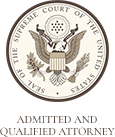Every state has its own laws pertaining to clearing your criminal record. The process, expungement, does not remove the charges from your file. It seals your record so that only limited individuals or entities may access the information. Anyone else running a criminal background check on you would not see the charges. In Pennsylvania, the law restricts expungement.
You should know that even if a court does not convict you of a crime, it may still show on your criminal record. Arrests and charges show up. This may cause you just as many issues as a conviction, which is why some people consider expungement.
It is essential to understand what is on your record because you cannot expunge most criminal convictions. The only ones eligible are summary offenses, which are minor criminal charges for low-level crimes. Misdemeanors and felonies are not eligible for expungement. However, if you have an arrest or you went to court for a misdemeanor or felony charge, you may be able to get this off your record.
Limits
The Pennsylvania Bar Association explains there are strict limits on when you can seek expungement. You must meet one of the following criteria:
- You are age 70 or older.
- You get a pardon from the governor.
- You must have at least five years after a summary offense conviction free of any criminal charges or arrests.
- You have been dead for at least three years.
Clearing your record is a court procedure. A judge must approve the action. So, you will have to submit a petition to the court and go through a court hearing where the judge considers your history and any evidence of your character to make a determination. Do note that even if you meet all the requirements, a judge may still deny your petition. This is why it is essential to accurately present your case and adhere to all procedures.



